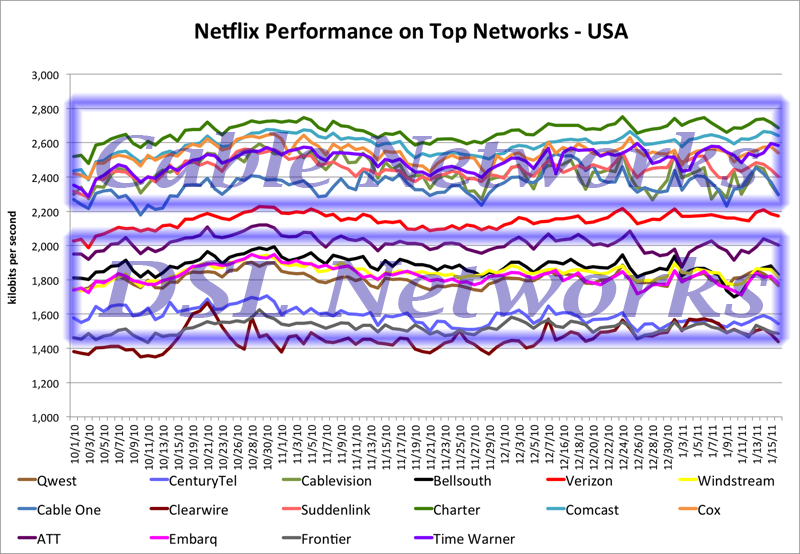
Fast, affordable Internet access for all.

City administrator Jeff O'Neill said that the city has no intention of abandoning FiberNet's 1,700 customers, including about 130 businesses. "This system isn't going anywhere," he said. "We're not going out of business." Despite the problems, he said the city has one of the fastest Internet systems in the country that has driven down prices and improved services by providing competition.The article also notes that prior to the City-owned network, the telephone company (TDS) provided very poor DSL service that was harming area businesses with slow and very unreliabile phone and broadband services. Without FiberNet Monticello, we don't know how many businesses would have been forced to relocate to be competitive in the digital economy. We decided to dig a little deeper to get a sense of what Monticello has received for its investment and difficulty. We previously examined the prices charged by Charter cable in town and found that households taking that deal were saving $1000/year.
 We also noted that Charter was almost certainly engaging in predatory pricing. After talking with other networks, we would guess that Charter is losing between $30 and $50 (conservatively) per subscriber per month.
We also noted that Charter was almost certainly engaging in predatory pricing. After talking with other networks, we would guess that Charter is losing between $30 and $50 (conservatively) per subscriber per month.We have had one instance where we needed to contact customer service, and the problem was fixed quickly and easily by the most polite customer service rep I’ve ever dealt with. Comcast came by recently to offer us a “substantial savings” if we’d make the switch back to them. My question was, why now? I was a customer for years and treated poorly as rates increased exponentially. Now the offer the discount? No thanks. For the $5 extra per month that we pay for EPB, we receive better features, prompt and polite customer service, and an all around trouble free experience. Thanks EPB!
ECFiber is using an innovative funding method to extend its network, supported by local citizens who lend funds that enable build-out to local neighborhoods within and across member towns. Citizens who invest as little as $2500 allow ECFiber to reach all households along designated routes. ECFiber determines where it will build by choosing routes that reach the greatest number of unserved businesses and households, which are then connected to ECFiber’s state-of-the-art fiber-optic service.These people are literally investing in themselves. ECFiber is an InterLocal Contract with a Governing Board composed of a representiative from each member town (of which there are 23). Investors are purchasing tax exempt 15 year promissory notes that effectively earn 6% interest (due to the one year holiday from interest and principal). They have raised $340,000 in this round of financing, which will allow the network to pass 60-65% of Barnard's 950 residents.
According to the City, Comcast's 2011 Basic Service Rate change went from $13.30 to $15.80 a month. This came in the wake of previous rate hikes—to $9.05 in 2008, to $10.30 in 2009, and to $13.30 in 2010. That all adds up to "more than 60%, on a service that is supposed to be affordable and is identified in the industry as ‘lifeline service'," Boston says. "In addition, when comparing Boston to neighboring communities that have rate regulation, Comcast has over-collected approximately $24 million from Boston's Basic Subscribers during the four year period from 2008 through 2011," the City's statement claims. Its own research indicates that neighboring cities that are still regulated, such as Cambridge, have cheaper rates.This has led the Boston Globe to editorialize "If cable firms act as monopolies, cities should be able to regulate.
When the Federal Communications Commission took away Boston’s power to regulate basic cable rates almost a decade ago, the assumption was that competition for pay-TV services would hold prices down for consumers. That assumption has not panned out. Comcast Corp., the successor to Boston’s original cable franchisee, still dominates — not least because its former monopoly status conveys lingering advantages that hamper competition even now.
Dan Olsen, who runs the municipal broadband service in Windom, was just about to leave work for the night when he got a call. The muckety-mucks at Fortune Transportation, a trucking company on the outskirts of town, were considering shuttering their office and leaving the area. "They said, Dan, you need to get your butt out here now," Olsen recalls. "I got there and they said, 'You need to build fiber out here. What would it take for you to do it?'" Fortune, which employs 47 people in the town of 4,600, two and a half hours southwest of the Twin Cities, relies on plenty of high-tech gadgetry. Broadband Internet access figures into how the company bids for jobs, communicates with road-bound truckers, controls the temperatures in its refrigerated trucks and remotely views its office in Roswell, New Mexico. Fortune even uses the Internet to monitor where and to what extent drivers fill their gas tanks in order to save money. Yet, when it was time to upgrade company systems three years ago, Fortune's private provider couldn't offer sufficient speeds. That's where Windomnet came in. Though Fortune was a mile outside the municipal provider's service area, "We jumped through the hoops and made it happen," recalls Olsen. "The council said, "Do it and we'll figure out how to pay for it.' We got a plow and a local crew. We had it built in 30 days."I have thought about this story frequently when I hear claims that publicly owned networks are failures.
 Look at these numbers!!
North Carolina has SEVEN of the worst 10 places to get broadband in the US. And these are the places in North Carolina that actually have broadband! Imagine how bad it is in the rural areas. Stunning to see the North Carolina Legislators conspiring to limit the ability of communities to invest in themselves when the private sector has no interest in next-generation networks, choosing instead to reap profits off of systems that barely meet the FCC's definition of broadband.
With such terribly uncompetitive services, of course Time Warner Cable and CenturyLink have run to the Legislature to ban the community networks that have stepped in to prevent lazy incumbents from killing the future of entire communities in the digital age. As we have been detailing (most recently here), the public is overwhelmingly opposed to Raleigh telling communities they cannot build the networks TWC and CenturyLink will not.
What more proof is necessary that the Legislators pushing H129 in North Carolina have sold out the citizens for a few massive companies that just happen to make large donations to their campaigns.
We previously charted the superiority of the community fiber networks in North Carolina, but this chart shows just how much the existing cable and DSL companies have left North Carolina communities behind.
Look at these numbers!!
North Carolina has SEVEN of the worst 10 places to get broadband in the US. And these are the places in North Carolina that actually have broadband! Imagine how bad it is in the rural areas. Stunning to see the North Carolina Legislators conspiring to limit the ability of communities to invest in themselves when the private sector has no interest in next-generation networks, choosing instead to reap profits off of systems that barely meet the FCC's definition of broadband.
With such terribly uncompetitive services, of course Time Warner Cable and CenturyLink have run to the Legislature to ban the community networks that have stepped in to prevent lazy incumbents from killing the future of entire communities in the digital age. As we have been detailing (most recently here), the public is overwhelmingly opposed to Raleigh telling communities they cannot build the networks TWC and CenturyLink will not.
What more proof is necessary that the Legislators pushing H129 in North Carolina have sold out the citizens for a few massive companies that just happen to make large donations to their campaigns.
We previously charted the superiority of the community fiber networks in North Carolina, but this chart shows just how much the existing cable and DSL companies have left North Carolina communities behind.
This is a video we have wanted to do for a long time. With H 129 threatening community networks across the state, we finished it. It uses information we published in a report about broadband in North Carolina in November, 2010. Our full coverage of H 129 is available here.
The Netflix Techblog has released a graph of performance by Internet Service Provider - which I modified to demonstrate the Looming cable monopoly as identified by Susan Crawford (and recently discussed here by Mitch Shapiro).

The trend is unmistakable. There are 2 distinct groupings - the cable providers all beat the DSL providers (Verizon is in the middle, likely due to its fast FiOS speeds averaging with much slower DSL connections). At the very bottom is Clear's 4G WiMax - you know, the superfast wireless that is the key to fast broadband!
Communities need to read this chart and take a lesson: the future of broadband is not pretty if you do not have a network that puts your needs first. Cable broadband speeds are increasingly more rapidly than DSL, meaning a local monopoly on high speed broadband, with DSL slowly becoming the modern dial-up.